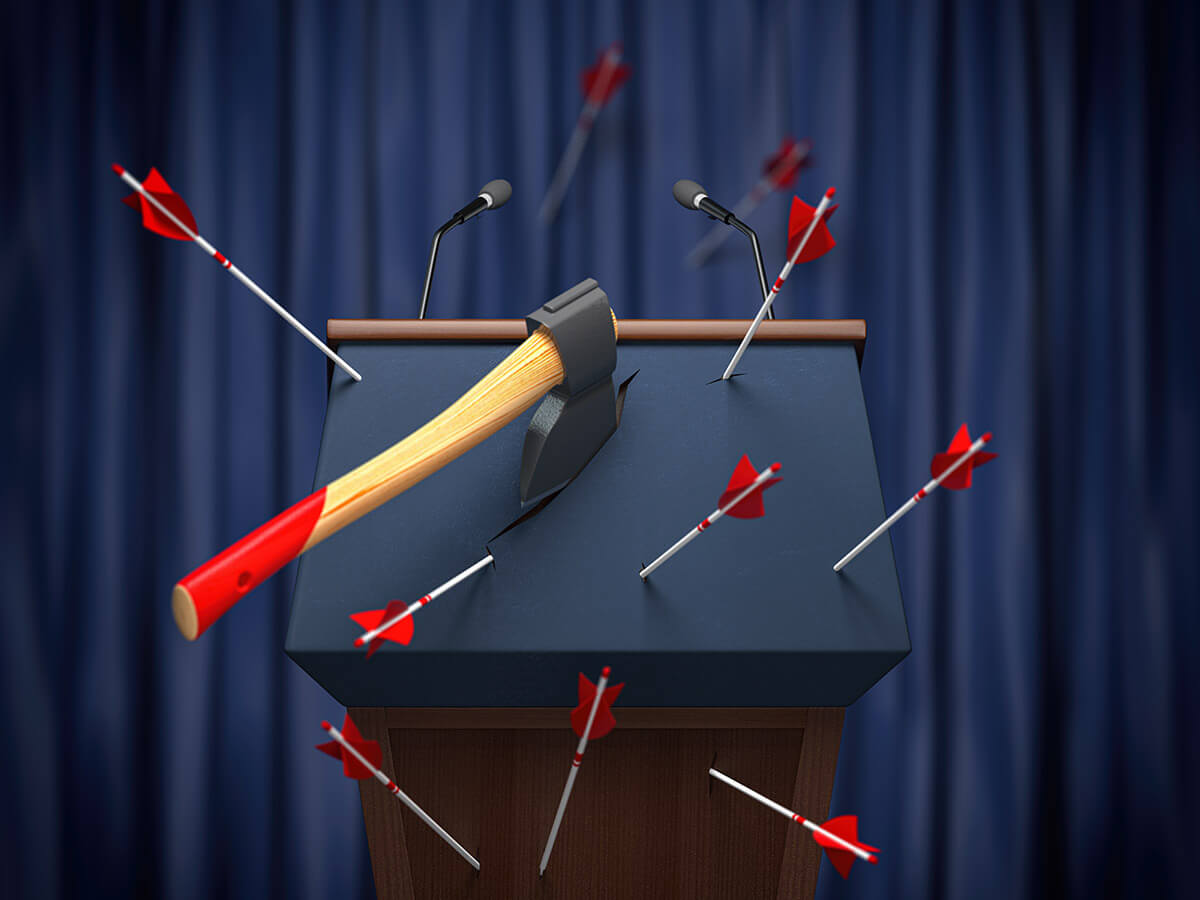“Lying is never a good strategy in politics” – Marcel Weider
Machiavelli said that the prudent ruler must be a good simulator and dissimulator, but he must “disguise this quality very well”, he must learn to be evil and make use of this quality, or stop making use of it, according to need. Machiavelli added that a ruler doesn’t really need to have all the virtues, “it is enough that he appears to possess them”.
This pretence, nowadays, becomes, in the overwhelming majority of cases, a powerful weapon of self-destruction, when it evolves into lies or untruths and grows like a snowball, amplified by a public opinion very much anchored in certainties that arise from what is said or heard to have been said.
And the discrediting adds up with each lie detected and affects not just one or other disguised politician, but politics in general. The expression “they’re all the same, I don’t believe any of them” circulates quickly, lumping everyone together.
This is where the need for a communication strategy comes in, designed by professionals who indicate the paths the message should take so that it achieves its objectives and convinces the target audience that there is a difference after all, i.e. politicians are not all the same.
Marcel Weider is the President of Aurora Strategy Group, and is a well-known and recognized political consultant. In this interview, he helps us understand how communication strategy is absolutely vital for a candidate or a political group to be able to convey their message credibly.
Milénio Stadium: In journalism we learn that the truth must be above all else – facts must be communicated with integrity and accuracy. In the specific case of the world of politics, with communication strategies serving the interests of a particular person or group, how can we find out what is true or false?
Marcel Wieder: In any democracy, getting the facts to make an informed decision is important. That is precisely why it holds great significance to possess an independent and unrestricted media, upon which individuals can depend upon to deliver the truth and keep politicians as well as political parties responsible.
In addition, having access through Freedom of Information allows people to know how decisions are made and the material that supports those decisions.
MS: How important is communication strategy in the world of politics, which we know is increasingly discredited in the eyes of public opinion?
MW: In politics, having a sound communications strategy is vital in getting your message across to the audience you are trying to speak to. Every day governments make decisions that affect your lives, whether municipally, provincially or federally. These decisions can affect where you live, how much you pay for gas, or how much taxes you pay. Communicating those decisions requires having a sound communications strategy.
In elected politics, the same thing applies. You need to understand what will encourage people to support your position. Without a strong and thoughtful communications strategy, your message will not reach the people you need to succeed.
It is no different than from the private sector where a company is launching a new product and needs to reach an audience that is prepared to buy their product. They need to think about how to communicate the strengths of the product and its features to position it to stand out from their competitors.
MS: Recently here in Ontario we have the Greenbelt case in which the Ford government seems to have been forced by public opinion to backtrack on decisions that had already been made – do you think that in this case there were errors in the communication of the whole process?
MW: I think it was a flawed process that created a communications problem for the Ford government. The Premier committed to not touching the Greenbelt and then backtracked on that promise. It became almost indefensible when it was revealed how the areas of the Greenbelt were chosen to be removed.
From a communications point of view, they painted themselves into a corner by trying to justify the expediency of their decision over a process that would be transparent. Once both the Auditor General and the Integrity Commissioner released their reports it became clear that they were in an indefensible position.
MS: Are lies or untruths a means of political survival? Or, on the contrary, can they be a means of self-destruction?
MW: Lying is never a good strategy in politics. Eventually the truth comes out and you’re caught. Having different perspectives or views on a subject is fair as long as you don’t stray into telling falsehoods.
Many politicians get caught telling lies that lead to their downfall. They may say things without full knowledge of the facts in response to a question posed to them. If they deliberately mislead, they should be held accountable.
MS: We know how much falsehood dominates our lives – especially in the world of social networks (a breeding ground for the creation of an almost parallel reality), which are also widely used to broadcast fake news. So how can we distinguish between what is true and what is false?
MW: Social media has become a real problem in distinguishing truth from falsehoods. The best way is using reliable and reputable sources for information. Major news outlets that have the resources to investigate and report on issues are seen as credible sources. Government institutions like Health Canada or the CDC in the United States provide accurate and unbiased information on health issues. Consumer Reports provide information on products we buy.
In terms of political information, it has become harder to distinguish reality from falsehoods. Again, as I mentioned above, check the source of the post, and then verify its authenticity. It takes a little bit more work, but taking things at face value creates more problems down the road.
Today more people operate in echo chambers wherein they subscribe to certain sources that fit their viewpoints. There is a lack of critical thinking that is impacting our political discourse. It is a sad commentary that we choose only to listen to only one point of view, the one we like. A healthy democracy requires us to challenge our preconceived notions and be open to new ideas. When we do that, we are all much stronger for it.
Madalena Balça/MS









Redes Sociais - Comentários